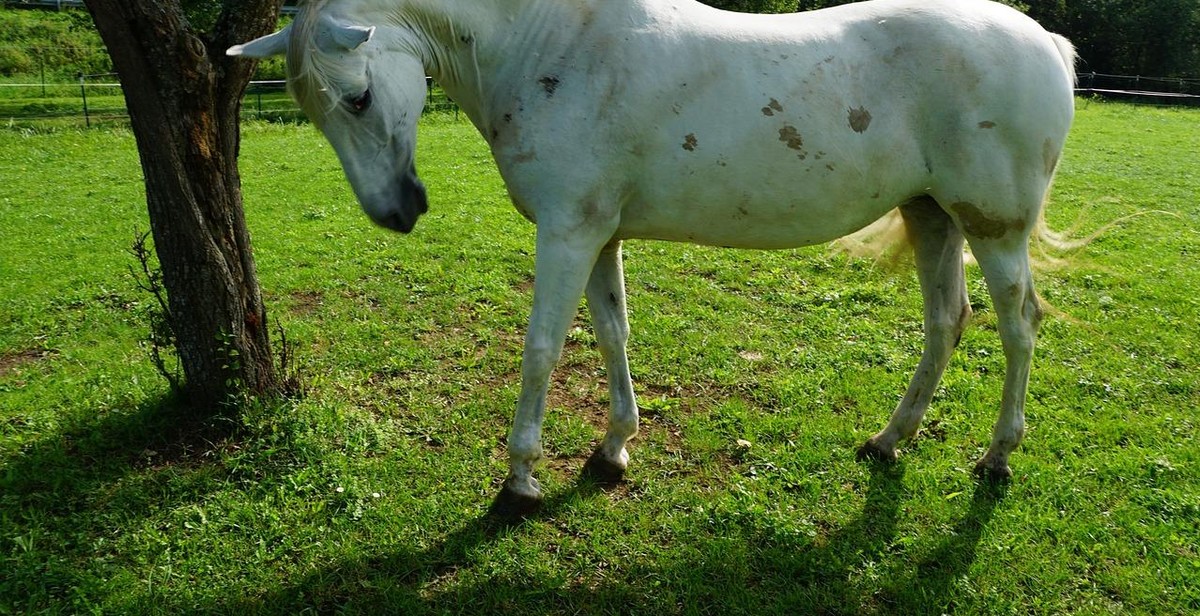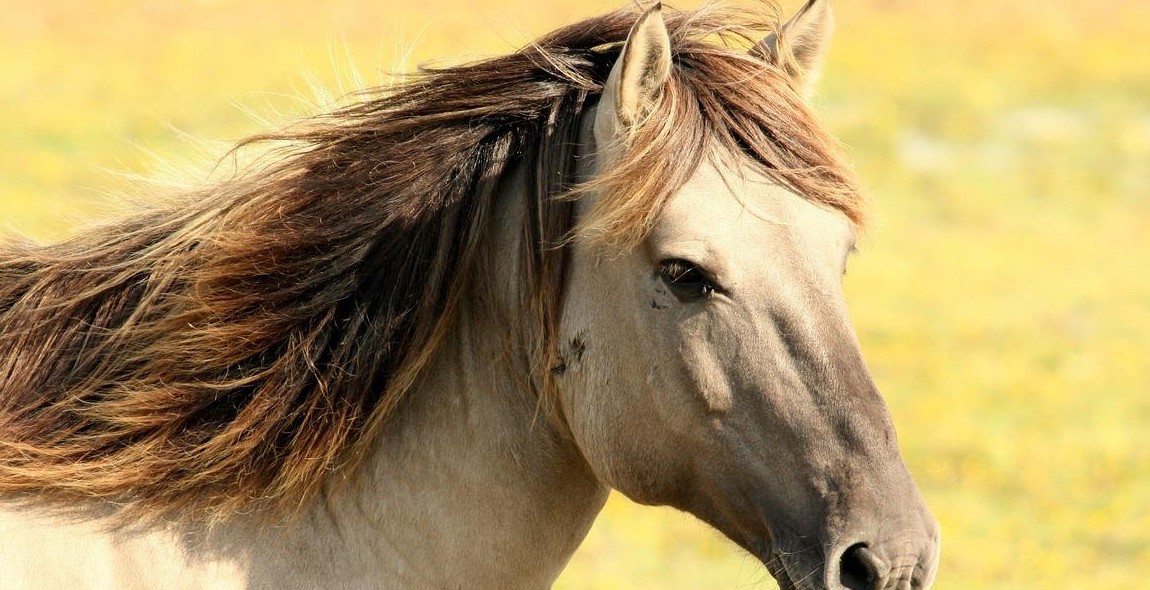Introduction
As a professional and experienced horse owner, I understand the importance of proper grazing management and pasture maintenance. The health and well-being of horses depend on the quality of their grazing and the condition of their pastures. In this article, I will share my personal experience and offer tips on how to manage horse pastures effectively.
The Importance of Pasture Management
Proper pasture management is crucial for the health and happiness of horses. Horses need access to fresh, nutritious forage to maintain their weight, energy, and overall health. Poor pasture management can lead to overgrazing, soil erosion, and the growth of harmful weeds.
Grazing Management Tips
Effective grazing management involves controlling the number of horses grazing on a pasture and the duration of their grazing. One of the best ways to manage grazing is through rotational grazing, where horses are moved from one pasture to another, allowing each pasture to rest and regrow. This technique also helps prevent overgrazing and soil compaction.
Pasture Maintenance Tips
Pasture maintenance involves regular mowing, fertilization, and weed control. Mowing helps maintain the height of the grass and prevent the growth of weeds. Fertilization provides the necessary nutrients for the grass to grow healthy and strong. Weed control is essential to prevent the growth of harmful weeds that can be toxic to horses.
In conclusion, proper grazing management and pasture maintenance are essential for the health and well-being of horses. By following the tips shared in this article, you can ensure that your horses have access to high-quality grazing and healthy pastures.
Why Proper Pasture Management is Important
As a horse owner, you want to ensure that your horses are healthy and happy. One of the most important factors that contribute to horse health and nutrition is proper pasture management. Here are some reasons why:
Improved Health and Nutrition for Horses
Proper pasture management ensures that your horses have access to high-quality forage, which is essential for their health and nutrition. When horses graze on healthy pastures, they consume a variety of grasses and plants that provide essential nutrients, including protein, fiber, and vitamins. This helps to maintain a healthy weight, improve digestion, and prevent colic and other digestive issues.
In addition, a well-managed pasture provides an ideal environment for horses to exercise and socialize. Horses that have access to pasture are generally healthier and happier than those that are kept in stalls or small paddocks.
Reduced Costs for Horse Owners
Proper pasture management can also help to reduce costs for horse owners. When horses have access to healthy pastures, they require less supplemental feed, which can be expensive. In addition, a well-managed pasture can help to reduce veterinary bills by preventing health issues such as colic and laminitis.
Furthermore, proper pasture management can help to reduce the amount of time and money spent on stall cleaning and maintenance. Horses that are kept in stalls require frequent cleaning and bedding changes, which can be time-consuming and costly. By allowing horses to graze on healthy pastures, you can reduce the amount of stall time and associated maintenance.
Conclusion
Proper pasture management is essential for maintaining the health and happiness of your horses, while also reducing costs for horse owners. By ensuring that your pastures are healthy and well-maintained, you can provide your horses with the nutrition they need to thrive, while also keeping them active and social. So, if you haven’t already, it’s time to start thinking about how you can improve your pasture management practices.
Grazing Management Tips
Grazing management is the key to maintaining healthy and productive pastures for your horses. Here are some tips to help you manage your pastures:
Rotational Grazing
Rotational grazing is the practice of dividing a pasture into smaller sections and rotating the horses between them. This allows the grass to rest and recover, which promotes healthy growth and reduces the risk of overgrazing. Rotational grazing also helps to control weeds and maintain a consistent forage quality.
When implementing rotational grazing, it is important to monitor the condition of the pastures and adjust the rotation schedule as needed. You should also avoid overcrowding the pastures, as this can lead to overgrazing and soil compaction.
Rest and Recovery Time
Rest and recovery time is crucial for maintaining healthy pastures. Horses should only be allowed to graze for a certain amount of time each day, depending on the size and condition of the pasture. This allows the grass to recover and prevents overgrazing.
Rest and recovery time can also be achieved by resting pastures periodically. This means removing the horses from a pasture for a certain amount of time to allow the grass to recover. Resting pastures can also help to control weeds and reduce the risk of soil erosion.
Mowing and Weeding
Mowing and weeding are important components of pasture maintenance. Mowing helps to control the height of the grass and prevent it from becoming too long and fibrous. Weeding helps to control the growth of unwanted plants and promote the growth of desirable forage.
When mowing and weeding, it is important to avoid damaging the soil and roots of the grass. You should also avoid mowing or weeding during periods of drought or extreme heat, as this can stress the grass and reduce its growth.
Fertilization
Fertilization is an important aspect of pasture management. Fertilizer can help to promote healthy growth and improve the quality of the forage. It is important to choose the right type of fertilizer and apply it at the appropriate time and rate.
When fertilizing, it is important to avoid over-applying fertilizer, as this can lead to nutrient runoff and pollution. You should also avoid fertilizing during periods of drought or extreme heat, as this can stress the grass and reduce its growth.
By following these grazing management tips, you can maintain healthy and productive pastures for your horses. Remember to monitor the condition of your pastures regularly and adjust your management practices as needed.

Pasture Maintenance Tips
Keeping your horse pastures in good condition is essential for the health and well-being of your horses. Here are some pasture maintenance tips that can help you manage your grazing land:
Soil Testing
One of the first steps in maintaining your horse pastures is to get a soil test done. Soil testing will help you determine the pH level and nutrient content of your soil. Once you know the nutrient levels, you can adjust your fertilizer application accordingly. A soil test can also help you identify any nutrient deficiencies or soil imbalances that need to be corrected.
Aeration
Aeration is the process of punching small holes in the soil to allow air, water, and nutrients to penetrate the soil more easily. Aeration can help reduce soil compaction and improve grass growth. You can use a mechanical aerator or a hand-held aerator to do this. The best time to aerate your pastures is in the spring or fall when the soil is moist but not too wet.
Seeding and Re-seeding
Seeding and re-seeding your pastures is important to maintain healthy grass growth. Overgrazing or heavy traffic can damage the grasses and create bare patches. Reseeding these areas can help bring back healthy grass growth. When seeding or re-seeding, make sure to choose the right grass species for your area and soil type. Plant the seeds in the spring or fall when the soil is moist and temperatures are cooler.
Watering and Drainage
Watering and drainage are also important factors in maintaining healthy pastures. Make sure your pastures have adequate drainage to prevent waterlogging and standing water. If your pastures are not getting enough water, you may need to irrigate them during dry periods. Overwatering, on the other hand, can lead to soil erosion and nutrient leaching.
| Tips | Benefits |
|---|---|
| Regularly mowing your pastures | Encourages healthy grass growth and reduces weed growth |
| Rotating pastures | Allows grass to recover and reduces soil compaction |
| Managing manure | Prevents nutrient buildup and reduces fly populations |
By following these pasture maintenance tips, you can ensure that your horse pastures remain healthy and productive for years to come.

Conclusion
Managing horse pastures can be a challenging task, but with proper grazing management and pasture maintenance techniques, it can be much easier. The key is to understand the needs of your horses, the soil, and the climate in your area. By following the tips outlined in this article, you can ensure that your horses have access to nutritious and healthy pasture all year round.
Key Takeaways
- Rotate your horses to different pastures to avoid overgrazing and promote healthy growth.
- Maintain proper soil fertility by regularly testing and adding nutrients as needed.
- Control weeds and invasive species to prevent them from taking over the pasture.
- Provide clean water and shelter for your horses to keep them healthy and comfortable.
Final Thoughts
Managing horse pastures requires time and effort, but it is well worth it for the health and happiness of your horses. By following the tips in this article, you can create a beautiful and sustainable pasture that your horses will love. Remember to always monitor your pastures and make adjustments as needed to ensure the best possible grazing conditions for your horses.
| Need Help Managing Your Horse Pastures? | Contact us for expert advice and assistance with your grazing management and pasture maintenance needs. |
